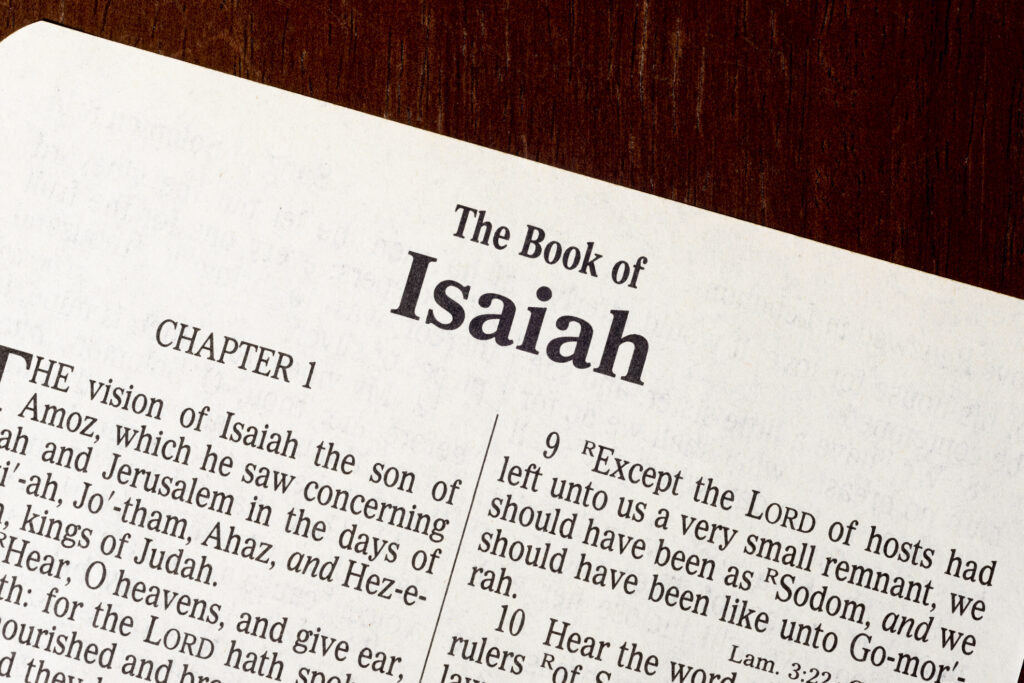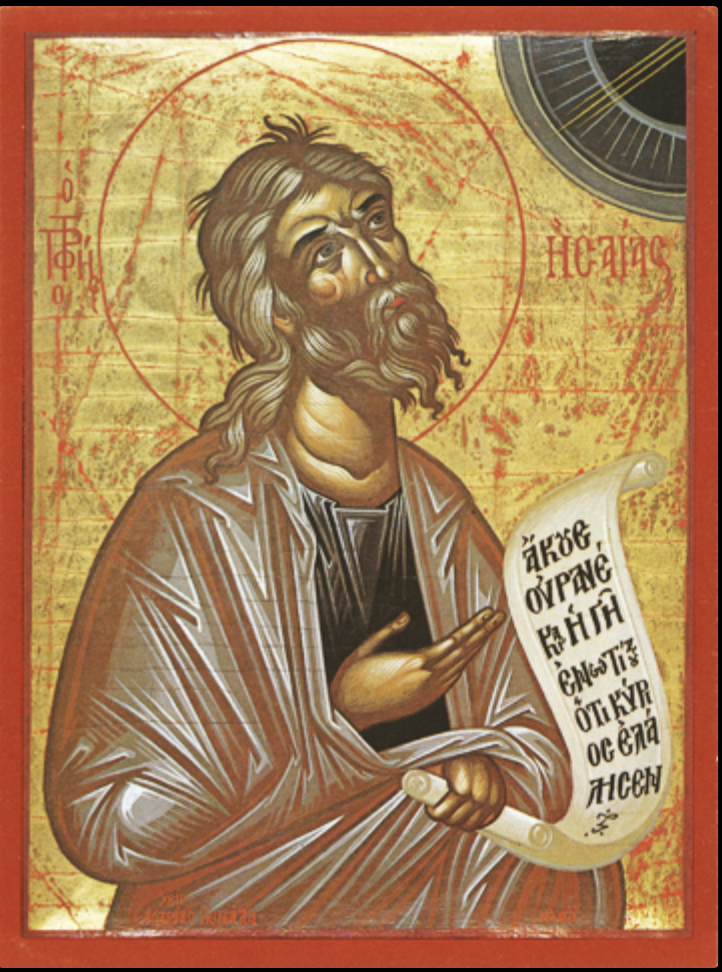Isaiah
Together
Isaiah Together
Your guide to Advent – right here
Through each week of Advent we are going to read and meditate on the Advent Isaiah readings from each Sunday. Each week we will publish short devotionals that you and your family can practice throughout the week.
This page is your study guide to reading Isaiah in Advent. Each week we are going to give you a devotional guide that will help you enter the world of Isaiah. Learning about Israel’s past anticipation of the Messiah will help us to live anticipating the Lord’s coming in the future.


Isaiah the Prophet - His Life and Context
Listen to Fr. Alex’s Podcast on Isaiah
In the Early Church, the Book of Isaiah was known as the Fifth Gospel for its many prophecies of Christ. Isaiah was recognized for predicting, not only the coming of the Messiah, but specific details of Jesus’s life like the visit of the Magi (60:3) his origins in Galilee (9:1-2) John the Baptist (40:3-5) his redemptive suffering on the Cross (53). For this reason, Isaiah is the second most quoted book in the New Testament behind the Psalms.
Isaiah began his 40 year career in the year 740. He lived through the destruction of the Northern Kingdom of Israel and the famous siege of Jerusalem by the Assyrian king Sennacherib in 701. Isaiah’s message has to do with judgment for Israel’s faithlessness in seeking security from foreign alliances rather than faith in God. In addition to his messianic prophecies, he foretold events that took place some 200 years after he lived like the Babylonian Exile and the Fall of Babylon. Hebrews 11:37 tells us Isaiah died violently at the hands of the authorities.
The Book of Isaiah is sometimes divided by scholars into two or three parts representing different authors. However, while the book is clearly a compilation of prophecies that occurred over a number of years, the book itself claims only one author and sports a remarkable consistency in imagery and language throughout. Most of modern scholarship’s reason for this is unbelief in the possibility of prophecy. Believers understand that God is capable of delivering predictions of the future, a power Isaiah himself specifically notes. There is good reason therefore to believe that Isaiah himself is the sole author and his prophecies were genuine.
